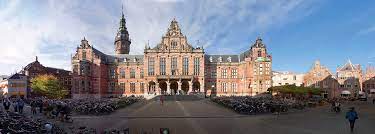University of Groningen: Six young UG researchers to top institutes abroad on Rubicon grants
Six recent PhD graduates from the University of Groningen will be able to conduct research at top institutes abroad for two years thanks to the Rubicon programme organized by the Netherlands Organisation for Scientific Research (NWO). The NWO Rubicon programme enables talented, young researchers to acquire international research experience to help kick-start their academic careers.
Earlier this year, the NWO had already announced three UG researchers would receive a Rubicon grant. Now, these six researchers will also receive one. In total 15 applications were granted.
Deciphering the metabolic crosstalk in the leukaemia microenvironment
Dr. Aysegül Erdem, University of Groningen -> Belgium -> de Duve Institute UCLouvain -> 24 months
It remains unclear how distinct cancer subtypes metabolically interact with their microenvironment. By characterizing the influence of cells from the bone marrow microenvironment on the metabolic profile of different leukaemia subtypes, the researcher will identify interactions that can be therapeutically targeted, with the aim of developing adaptive, personalized cancer treatments.
Spatial reconstruction of the neurovasculature in amyotrophic lateral sclerosis and frontotemporal dementia
Dr. Emma Gerrits, University of Groningen -> Sweden -> Karolinska Institutet -> 24 months
The researchers will generate a molecular atlas of brain and spinal cord tissues of patients with amyotrophic lateral sclerosis and frontotemporal dementia. These data will form the base for a new CNS-disease atlas of the Human Protein Atlas project.
Uncovering the secrets of functional protein aggregation
Dr. Wouter Huiting, University of Groningen -> United States -> Stanford University -> 24 months
Protein aggregation is linked to ageing and neurodegeneration, and is often viewed as innately detrimental. Recent studies have found however that aggregation can also be important for normal cell processes. The researcher will investigate how functional protein aggregation works, how it is regulated, and what distinguishes it from harmful aggregation.
Next-generation materials science: Understanding the role of individual atoms for postsilicon information processing
Dr. Carmen Maia Gilardoni, Zernike Institute for Advanced Materials (UG) -> United Kingdom -> University of Cambridge -> 24 months
Next-generation information processing requires new materials beyond silicon. The researcher will investigate different materials to find out how individual atoms provide the added functionality required for information-processing technologies of the future.
New methods to combat emerging viruses
Dr. Anne-Grete Märtson, University of Groningen -> United Kingdom -> University of Liverpool, Department of Pharmacology and Therapeutics -> 24 months
Viruses with pandemic potential are continuously emerging. This project will use cytomegalovirus as a model to utilise a novel laboratory method to investigate emergence of resistance and viral killing. The method will provide new dosing regimens for cytomegalovirus treatment, and will be used to accelerate drug development for emerging viruses.
Let’s stop talking about Holmes: Philosophy of fiction beyond novels
Dr. Merel Semeijn, University of Groningen -> France -> Institut Jean Nicod -> 24 months
Current philosophy of fiction is unable to yield a comprehensive understanding of fiction and its value because it pays too little attention to fictions other than novels. The researcher widens this scope by investigating pretend play, poetry and ‘breaking the fourth wall’ in theatre.

